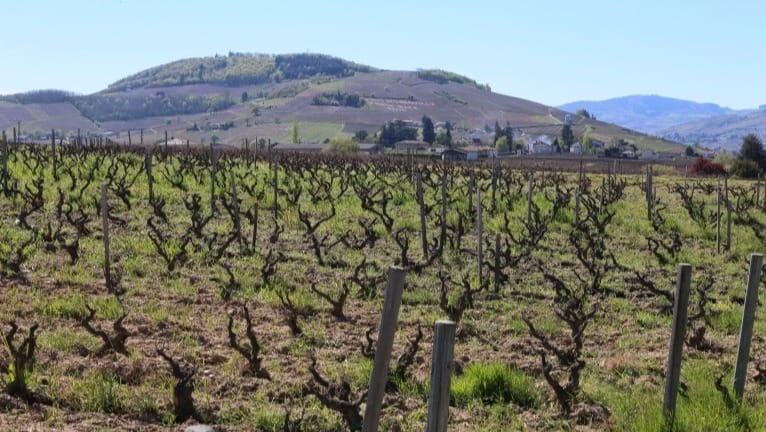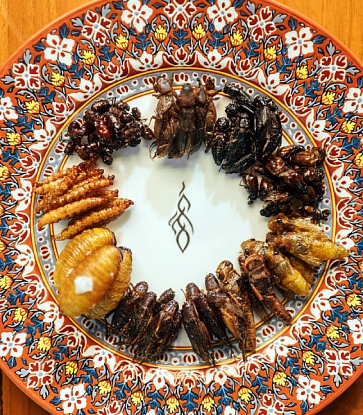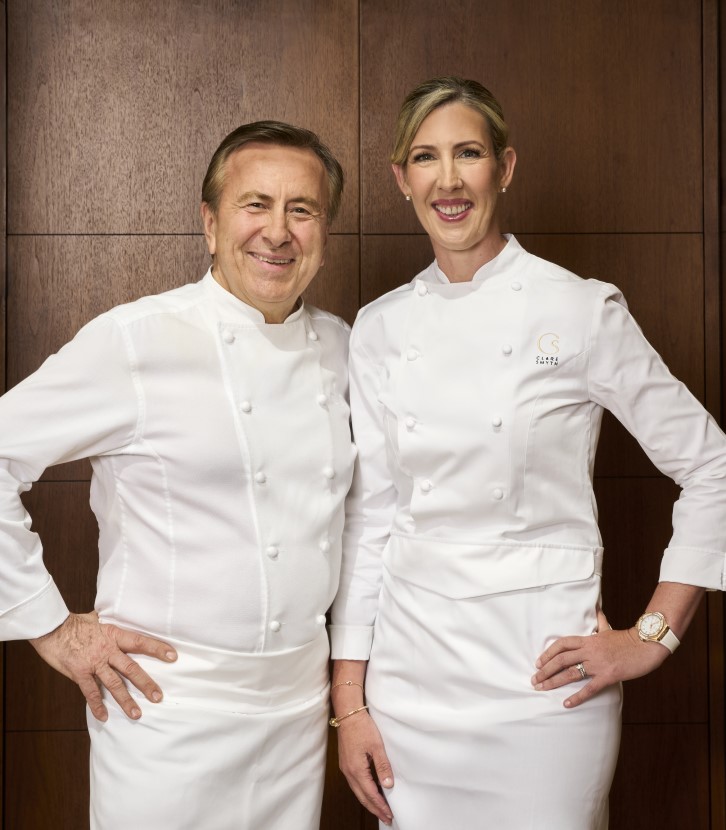Korea is a relatively young market when it comes to wine. Although alcohol is omnipresent in the day-to-day life of many Koreans, wine drinkers still comprise a small percentage of the drinking population. There are several factors that come into play, not least the high cost of wine. High import taxes, shipping costs, Korean back-label printing, warehouse storage fees, and fat margins most retail chains add on to the wholesale prices all contribute to imported wine becoming too expensive for the average Korean consumer.
However, Korea is still considered one of the most attractive Asian markets for wine exporters, as there has been a steady increase in demand that continues to grow since Korea’s imported wine market first opened up in 1987. According to the IWSR Vinexpo Report 2016, Korea’s wine consumption will be up by 16.2% in 2019 compared to 2015.
While imported wine was predominantly consumed around luxury hotels in the early days, consumption is now being driven by a new generation of urban, middle-class professionals who are traveling with greater frequency and becoming more exposed to Western culture than ever before. This well-traveled generation is far more curious and open-minded than their parents’ generation, eager to experience different cultures, not least when it comes to food and drinks. As the younger generation become more and more knowledgeable and open to stepping out of their comfort zone, chefs and sommeliers are also stepping up their game, diversifying their wine offering away from the traditional Bordeaux and Champagne.
Natural wine seems to be the latest buzzword in the local wine scene. Although a handful of restaurants and bars around Seoul–particularly in the swanky Cheongdam area–have been offering natural wine for many years, most wine drinkers didn’t know about it or even care for it. But now, more and more people are talking about natural wine and are curious to try it. February saw the inauguration of Korea’s first natural wine fair ‘Salon O,’ which saw an impressive turnout of wine importers, distributors, sommeliers, chefs and assorted wine enthusiasts. Natural wine tasting events have been popping up with more frequency around Seoul.
This raises the next obvious question: in a country where fads are here one minute and forgotten the next, how will Korea’s trend-savvy consumers with a penchant for wine embrace natural wine once the word really gets out? (Will it even considering Korea’s still-limited wine market?)
The following is a candid interview with two natural wine enthusiasts who want to see more people drink natural wine. Choi Young Seon is the founder and CEO of Paris-based wine agency Vinofeel who started introducing natural wines to Korean wine importers in 2014. She is also responsible for organizing Salon O 2017, Korea’s first natural wine fair. Her company portfolio currently includes some 60 natural wine producers–mostly French–from regions such as Alsace, Bourgogne, Champagne, Jura, Loire, Rhone and Pouilly-Fumé.
Clement Thomassin is a French sommelier from Alsace who joined one Michelin-starred Zero Complex in Seoraemaeul last year. The restaurant’s wine offerings are 100% natural, and as Thomassin reveals in the following interview, the response to it has been extremely favorable.
What is natural wine?
Choi: Simply put, natural wine is wine with nothing added and nothing removed. No additives have been added during the wine-making process: no filtering, no fining and no additives. Natural wine is also all about the vineyards: vineyards have to be farmed organically in order to produce wine that can be labeled “natural.”
Then, there are organic and biodynamic wines made with lower intervention than normal, but still may contain additives including sulfites, although in much smaller amounts than conventional wines.

How did you get into natural wine?
Choi: Call it destiny, but I owe my career in wine to a bottle of Chablis ’89 my French professor brought back from Paris during my junior year at Seoul National University. It was the early 90s and there were only a handful of wine drinkers in Korea at the time. That bottle sparked my interest in wine. After graduation, I moved to New York to work in finance for a brief while. New York was a great place to satisfy my curiosity for wine and I tried as many different wines I could get my hands on. After my brief stint in finance in New York, I returned to Korea where I co-managed an M&A company with a friend. But by that time, I was already completely obsessed with wine. I quit my job in the spring of 2004 and flew to Bordeaux. I spent all of my savings to travel to vineyards, to drink wine and to study wine. Wherever there was wine, I was there – from South America to Eastern Europe.
Right after completing my masters in wine at the ESC de Dijon in February of 2008, I set up my company Vinofeel and started introducing conventional wines to the Korean market. At first, I hunted down well-established wines, wines with good reviews because they were easier to sell. But starting in 2014, I expanded Vinofeel’s portfolio to include a wide selection of natural wines from all over France.
Thomassin: I’ve been a sommelier for more than 10 years now. I worked in restaurants and then became co-owner of a wine shop and wine bar in Strasbourg, Alsace where we only sold natural wine.
When I started my career as a sommelier, I didn’t know what natural wine was. It’s not something you learn at school. I had heard about organic and biodynamic wines but never about natural wines.
I had my first taste of natural wine in 2009. One of my customers offered it to me and I was shocked by the taste. I’d been drinking wine for many years up to that point, but I’d never had wine like that. It was intense with fruits and spices and there was something wild and animal about it. The flavors were so incredibly well-balanced – complex but harmonious. It was a powerful wine from the south of France with a high alcohol level – powerful but easy to drink at the same time. I’d never experienced that kind of balance before.

Humans have been making wine naturally for thousands of years. Why, then, this new-found interest for it?
Choi: With the current trend in food, I think it was just a matter of time. More and more people are interested in food products that are focused on the expression of where it comes from. So, why not with wine as well? If a wine tastes good, and it is made naturally without being highly manipulated and controlled in a more hand-crafted approach that maintains the uniqueness of a vineyard, then there is no reason not to embrace it.
Jules Chauvet had already advocated natural wines made without the use of sulfites as early as the 1970s, but the natural wine movement only started in France in the late 1990s and exploded in the last couple of years. Small natural wine salons are constantly popping up in Paris and many of the big names in French cuisine are offering it on their wine list. In fact, natural wine consumption in Paris is currently at its all-time high.
London and New York have been relatively slow in catching up with the trend, but like Paris, the natural wine movement really exploded in the last couple of years. Natural wine is still new to the Korean wine scene, but the demand is growing.
Thomassin: I think the trend definitely goes hand in hand with the growing interest in organic and healthy foods. There is a growing demand for honest products. Chefs are taking more care when choosing the ingredients they cook with and they try to be more transparent about where the products come from. The customers want to know as well.

There is no legal or official definition of what natural wine is or should be, and this is one of the reasons why it is so controversial.
Choi: In my opinion, there is little point in creating a strict definition for natural wine with a certifying body because it runs against the spirit of the movement; natural wine making has always been about the philosophy and less about the methodology. For me, a rigorous certification process makes more sense for products subject to mass production and mass consumption, which is not the case with natural wine. Natural wine is still produced in very limited batches and enjoyed by a very small percentage of wine drinkers. For now, the term “natural” is a self-regulating term, although there is a movement in France to change that. I would advise consumers to rely on reliable wine importers or sommeliers when selecting natural wine.
Thomassin: I guess it is a trust issue for now. But we live in an age where technology makes information so easily accessible . It has become increasingly more difficult to deceive consumers. We can look up reviews on anything and everything and impostors would be found out.

Critics often moan about how frequently faulty natural wines are.
Choi: The reason why it has taken close to two decades for the natural wine market to flourish in Paris is because of those critics. Natural wines go against everything they were taught about wines, so they find the concept difficult to accept. They were taught that wine cannot be made without the addition of cultured yeasts, because most conventional wines are made with grapes sprayed with chemicals that lack the natural yeasts needed for fermentation. In their world of conventional wine, natural wine doesn’t make sense because wine cannot be made without human intervention. Also, most of the critics of natural wines are authorities in conventional wine.
Of course, there are bad natural wines, and some exhibit flavor characteristics which can be challenging, or even faulty. Not all natural winemakers are perfect nor are all natural wines perfect. Faulty wines exist but, for me, that only accentuates the joy of drinking well-made natural wines; a good glass of natural wine is alive as a result of nature doing its magic and hard work by extremely talented winemakers.
Thomassin: It would be great if people could make natural wines that are always easy to produce and every vintage is a great vintage. But unfortunately, wine making doesn’t work this way. I’m okay with this because I prefer wines that are not always the best or even a little faulty but still alive compared to those that are clean and consistent but already dead in the bottle. That’s boring to me.
As with conventional wines, there are good natural wines and poorly made natural wines out there. Certainly, there are the funky and flawed examples. But the best examples show so much more personality and depth of flavor than conventionally made wines could ever do.
Young Seon, could you introduce Salon O for us?
‘O’ is zero and is pronounced the same way as ‘eau’, the French word for water. Zero means nothing has been added and water symbolizes purity. When I started introducing natural wines to Korea three years ago, I told myself that I would one day organize a natural wine event in Korea. This year’s Salon O was the first event of its kind and I plan to hold one every year.
At this year’s Salon O, I introduced some 130 natural wines from 50 wineries that I currently help export to Korea. I also invited five winemakers from France and Italy who talked about their wineries and their products to local wine types.
I was initially worried that not many visitors would attend, but that was not the case at all. I was especially impressed by the number of chefs that were there who showed a genuine interest in natural wine. Their presence at Salon O is a reflection of their customers’ demands. If the chefs show interest, so will the sommeliers and, ultimately, the consumers.
Next year, I plan to introduce even more wines at Salon O. But before that, I want to hold a couple of smaller natural wine events this year, starting with one this summer.
Clement, tell us about the wine list at Zero Complex.
Right now, we have 80 different natural wines. It’s great because in a short span of time, it has become much easier for me to get natural wines in Korea. The variety of natural wines I can put on the wine list has increased significantly, even compared to last year. I build the wine list as I’d build a conventional wine list – by region, by flavor, by style, by winemaker. Of course, I also keep in mind the food that is served here.
I don’t always mention to our customers that our wine is “natural.” I just want them to enjoy good wine and have a good time. Natural wine, after all, is just a wine. I pushed it a bit more when I arrived in July because the concept of natural wine was still very new to Korea at the time. We keep the price of our wine low so that more people can enjoy it. I want to see wine on every table.
Could you give us an example of a food and wine pairing you offer at the restaurant?
There is a dish chef Lee makes using king mackerel. The fish is candied, so it’s a little sweet. Other components of the dish include dried rose petals, strawberries, fennel seeds and honey vinegar. It’s very unusual and the flavors surprising. I had a hard time finding the right wine for the dish, but eventually I found a great one from my hometown of Alsace. It is made with Gewürztraminer grapes which is typical of the Alsace region. The wine is made with residual sugar so it is slightly sweet. It’s very flavorful and exotic with hints of lychee, passion fruit and rose blossoms. It also has a great acidity as a result of being made naturally. Conventionally made Gewürztraminer wines don’t have this kind of acidity. It’s usually heavier. But, this natural wine has a great acidity that balances the sweetness. It is refreshing with lots of flavor and it works very well with the king mackerel dish. The customers love it because most of them had never experienced the French Gewürztraminer. They are amazed.
I also like to pair cuttlefish with red wine. Chef Lee’s cuttlefish dishes almost always contains ink which has a powerful flavor that isn’t easy to pair with wine. The cuttlefish itself would be great with white wine, but with the ink, it becomes tricky. I find that red wine with great acidity works well with the ink. Right now, he is serving a cuttlefish tempura with cuttlefish ink tartare sauce. It’s a pretty heavy dish. I serve it with wine from Jura made with Poulsard grapes – also very unusual for Koreans. The wine is super light and refreshing yet fruity.
I like to serve wine that my customers have never tried before. I don’t want to serve something they can find at the nearest wine shop. Customers often thank me for introducing them to something new.

Why should natural wine be important to consumers? Is it a trend or is it here to stay?
Choi: I believe the future of natural wine is bright. Once you enter the world of natural wine, you seldom go back. I’ve seen winemakers transition from conventional to natural, but never the other way around.
Consumers are a bit more complicated. People who strictly stick to natural wines are often allergic to sulfites. Others leave the boundaries more open; they prefer to drink natural wines but will also drink organic and biodynamic wines. Many, like myself, will drink anything as long as it tastes good. But over the years, I’ve discovered that the wines I find to be truly amazing tend to be natural wines or low-intervention wines. Many of the really expensive wines in the market are often low-intervention wines because those wine producers have the means to grow the best grapes that require very little manipulation.
For this reason, I want the wines in the affordable price range to be natural wines. It would be sad to think that wines that make it to the average consumer’s table have been made with grapes sprayed with harmful chemicals instead of healthy grapes. We live in an age where people care more and more about what they eat. In that respect, natural wine has never been more relevant.
Thomassin: I started drinking natural wines in 2009 and I don’t think I can go back now. I believe that when you love the taste of natural wines and understand the way natural winemakers work in the vineyards, you cannot go back to drinking conventional wines. In that respect, I don’t think the movement is a passing fad.
I also find that Koreans are less prejudiced and more open to the concept of natural wine – probably because the history of wine drinking here is so short compared to France. Whatever the reason, I am seeing a growing demand for natural wines in Seoul which makes my job easier and more interesting.
Published 2017.04.10



















